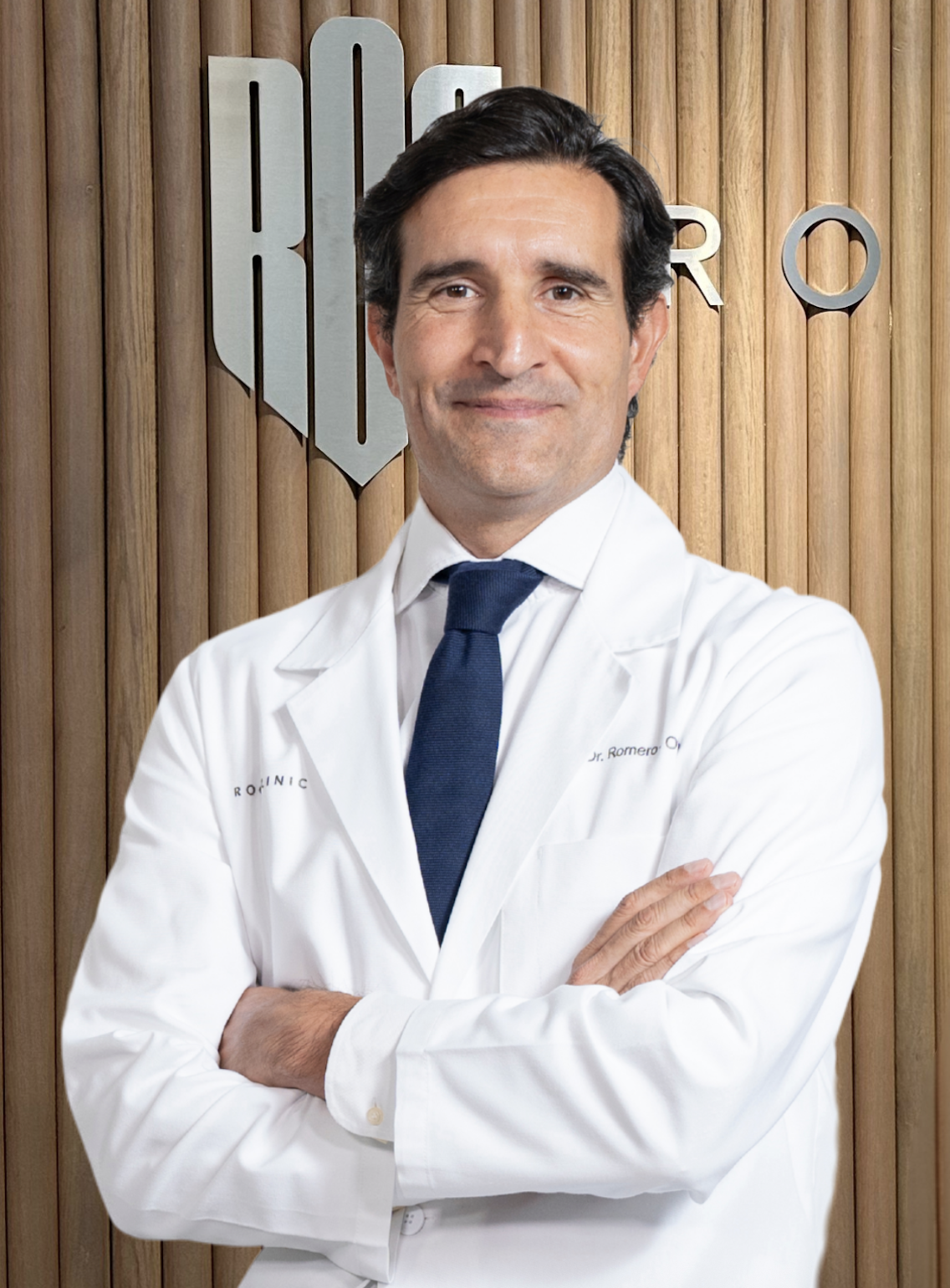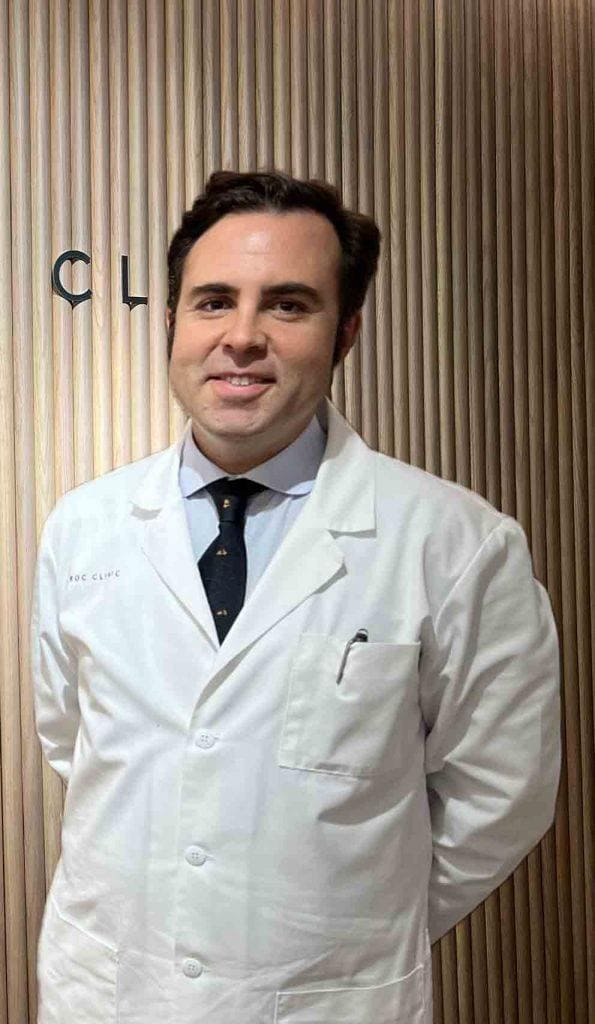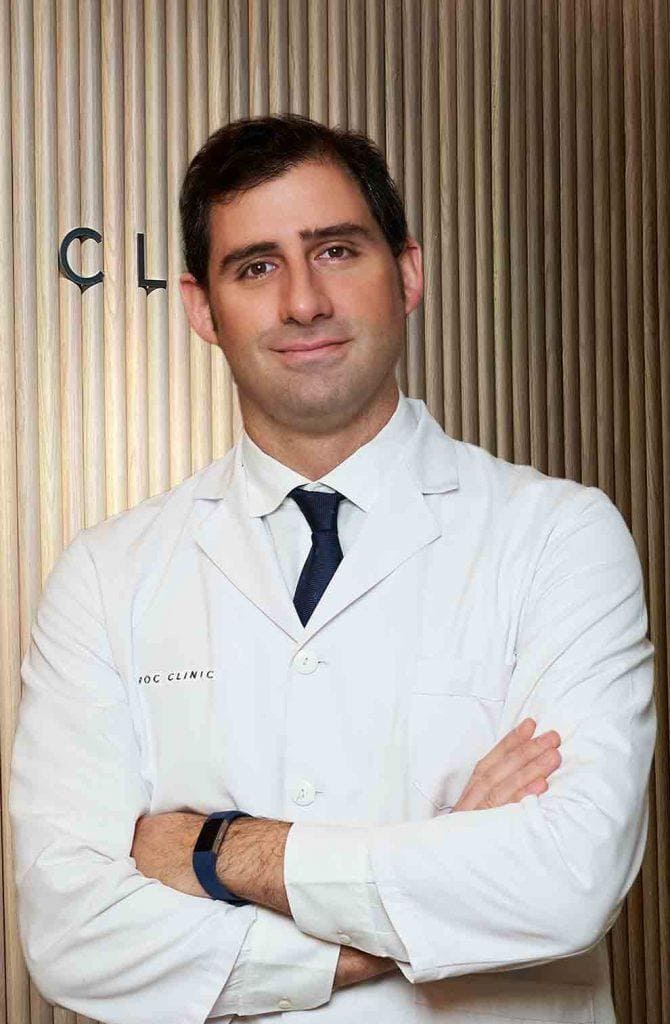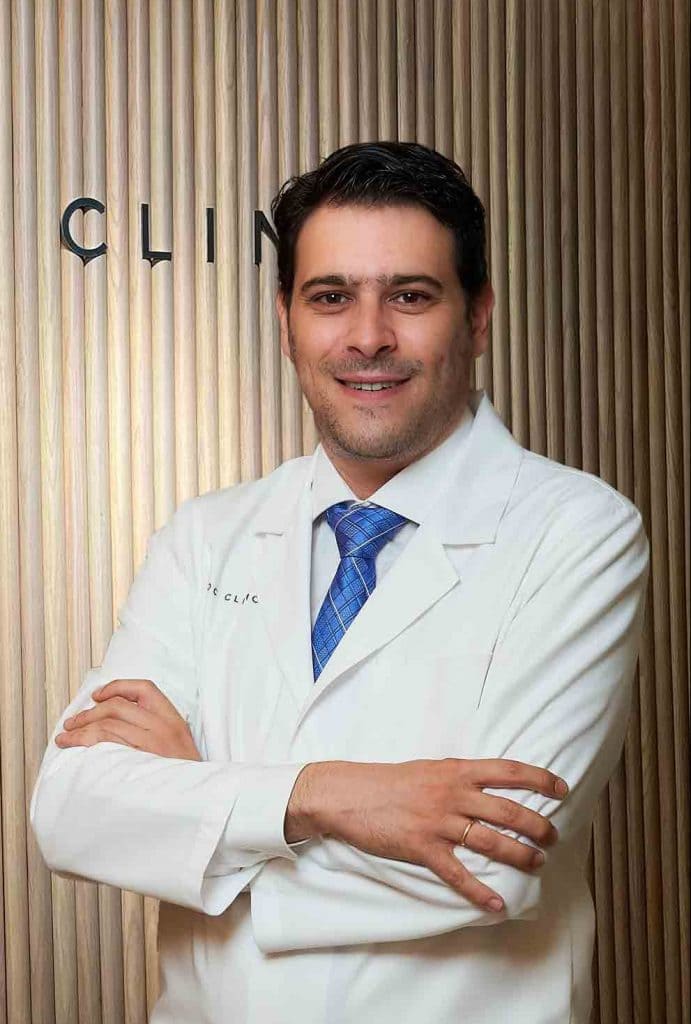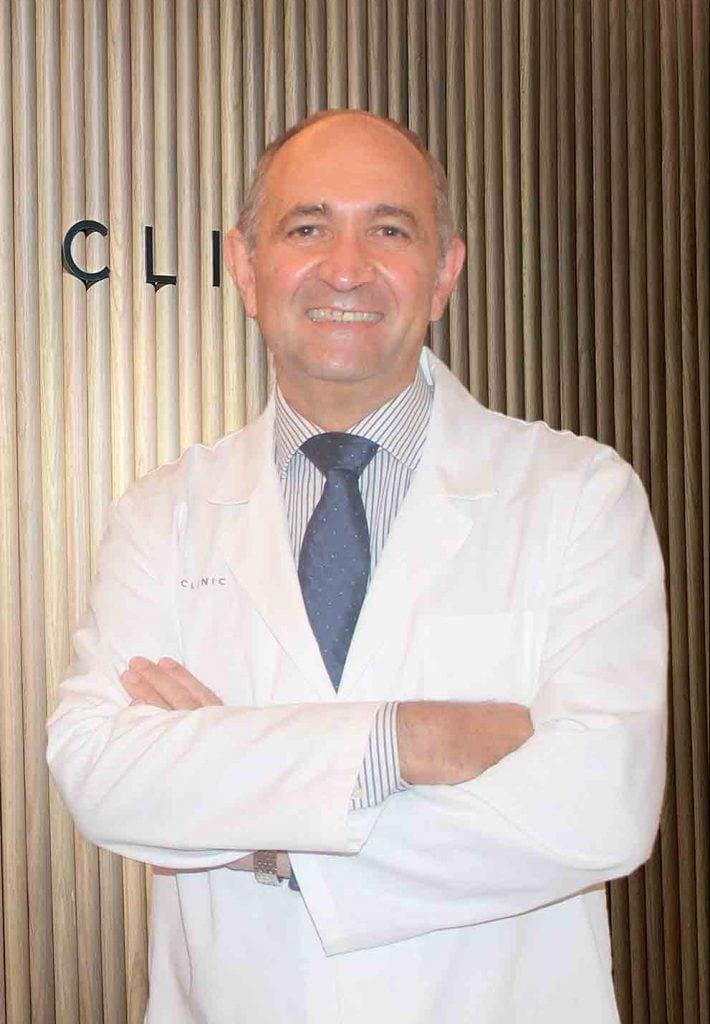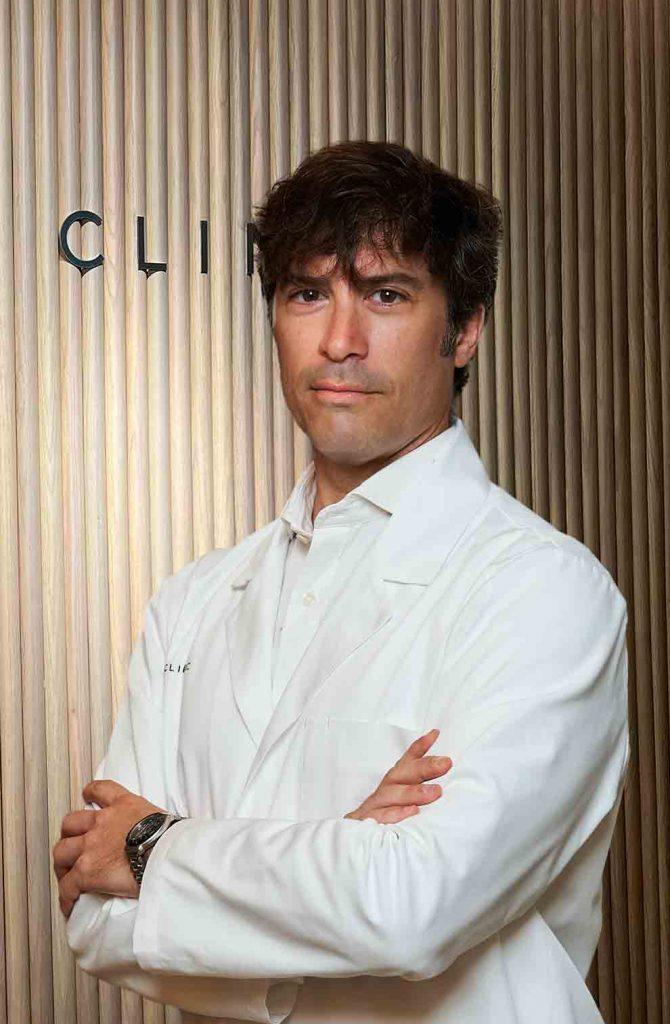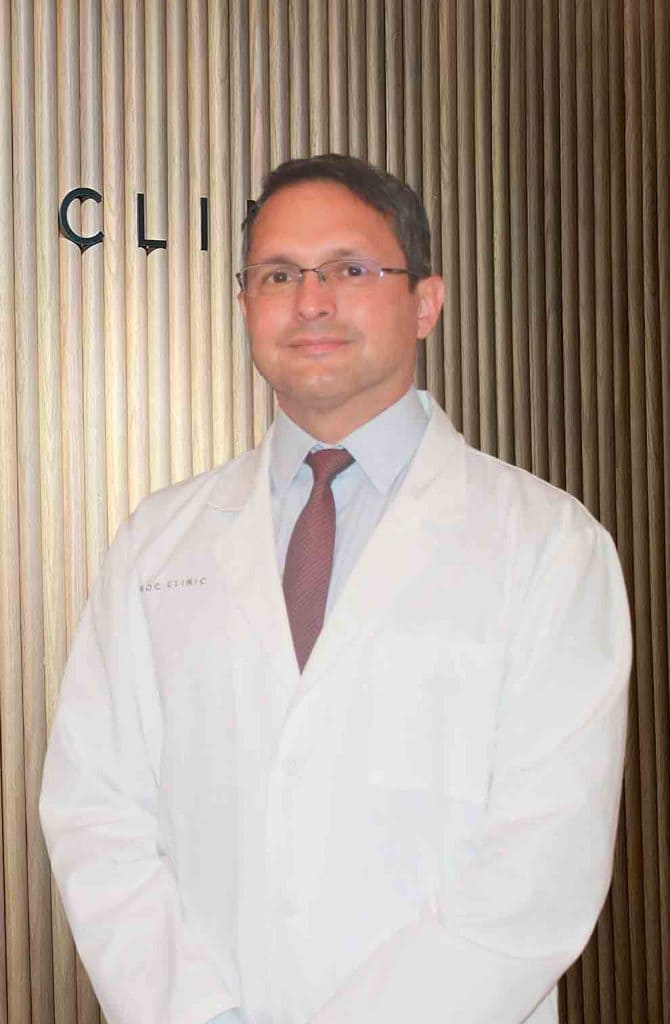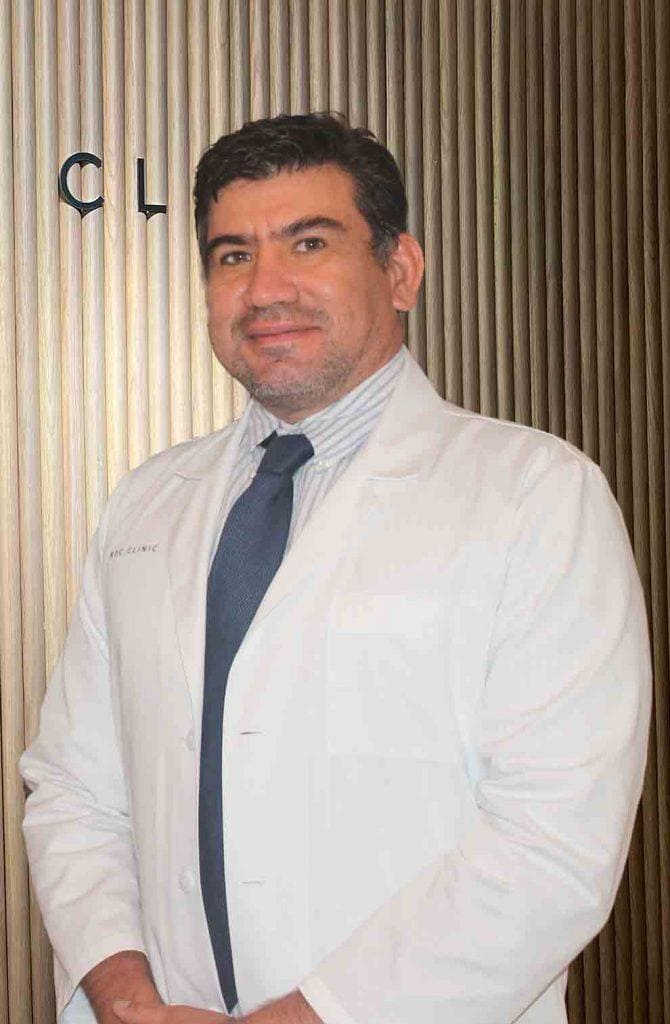Treatment Prostate Cancer
Prostate cancer requires individualized treatment.
A treatment appropriate to the type and evolutionary stage of prostate cancer is the basis for obtaining a good result and achieving the best quality of life for the patient. The use of the latest technologies and pioneering treatments, together with the experience of the Urology team, are one of the keys to success.
- Super-specialized urologists
- Personalized treatment
- Minimally invasive approach
- More than 16,000 patients successfully treated
Prostate Cancer Treatment
The treatment of prostate cancer depends on the stage of the disease, the patient's profile and the aggressiveness of the tumor. At ROC Clinic we are committed to a personalized and multidisciplinary approach based on scientific evidence, which allows us to offer the best therapeutic options to each patient.
There are various treatment modalities for prostate cancer depending on the case:
Tumors with good prognosis and non-aggressive:
Active surveillance
In some cases, a good prognosis and non-aggressive prostate cancer may not need immediate treatment and may simply be monitored. Active surveillance may be an option for cancer that does not cause symptoms, is confined to a small area of the prostate and is expected to grow very slowly. It will only be treated if it is detected that the aggressiveness of the cancer is increasing and will begin to threaten the patient's life. However, keeping a close eye on this type of tumor does not mean 'doing nothing', because, first of all, a complete mapping of the prostate is necessary in which there should be no high-risk tumor, and the patient should understand the pros and cons of this strategy. Secondly, the monitoring of men in this situation is really exhaustive, using prostate MRIs and control biopsies, in addition to urologists highly specialized in uro-oncology.
The main benefit is the absence of side effects. Among the disadvantages is the fact that patients have to undergo many tests, some of them invasive, such as prostate biopsies.
Tumors with good prognosis that can be treated locally:
Focal Therapy
Some tumors with a good prognosis can be treated locally without the need to remove the entire prostate. The treatment used for this purpose is focal therapy, which makes it possible to treat only the lesion and respect the prostate, substantially improving the postoperative period and reducing the side effects of the treatment.
It is a technique that is performed in the operating room, which destroys the prostate tissue with cold or heat and can be applied in specific cases of single tumors:
- Cryotherapy. Cryotherapy or cryoablation uses very low temperatures to destroy cancer cells. By means of needles placed transperineally in the areas to be treated, the desired area of the prostate is frozen and all the tumor tissue is destroyed.
- HIFU. High intensity focused ultrasound achieves the same damaging effect on tumor areas, but thanks to the heat that an ultrasound device is able to concentrate on the prostate tissue and cause it to die, without affecting other adjacent tissues.
- Electroporation. Electroporation also makes it possible to preserve as much as possible the healthy structures in the vicinity of the tumor lesion to be treated. Transperineally, several needles are placed between which an electrical potential difference is developed. Thus, a series of short, high-voltage electrical pulses are administered, which have a selective destructive effect on the cancerous cells of the lesion to be treated.
Aggressive tumors:
Radical prostatectomy (surgery)
In cases in which the tumor is aggressive and it is not possible to treat it in a more conservative manner, the most curative alternative is surgery. Surgical treatment or surgery for prostate cancer consists of the complete removal of the prostate gland and surrounding tissues, removing also, in some cases, the lymph nodes in the pelvic area. It is an option to treat cancer that is limited to the prostate. Occasionally, surgery is recommended in combination with other treatments to treat an advanced prostate tumor.
It can be performed by several approaches such as:
- Open. In open surgery or retropubic surgery, the surgeon makes a long incision in the lower abdomen to access and remove the prostate gland.
- Laparoscopic. In the laparoscopic approach, the surgeon makes small incisions through which surgical instruments and a video camera (laparoscope) are inserted to see inside the abdomen during the procedure.
- Robotic. During robotic-assisted radical prostatectomy, surgical instruments are attached to a mechanical device (robot) and inserted into the abdomen through several incisions. The surgeon sits at a console and uses hand controls to guide the robot and move the instruments.
Currently, at ROC Clinic, we have two robotic systems available: da Vinci (Intuitive Surgical) and Hugo (Medtronic), being the first center in Spain to incorporate the latter robot. The robotic technology translates the surgeon's movements, improving ergonomics and reducing tremor. In addition, it allows a real three-dimensional view of the operative field with a high image quality that guarantees clarity and precision of the details.
However, none of the above approaches has been shown to be superior to the others in terms of oncologic control and better preservation of the patient's voiding or sexual function. Although it is true that both laparoscopic surgery and robotic surgery have been shown to reduce bleeding and the patient's hospital stay.
These procedures take approximately 2 to 4 hours and are performed under general anesthesia.
Radiotherapy
Radiation therapy is the administration of ionizing radiation for the treatment of cancer, using high-powered energy to destroy cancer cells. Radiotherapy treatments can be administered alone or in combination with surgery.
In the case of prostate cancer, there is a modality called brachytherapy, indicated only for patients with low-risk tumors, which consists of inserting radioactive seeds into the prostate gland. These seeds administer a low dose of radiation over a prolonged period.
External radiation therapy may also be given through machines. This is an option for treating cancer that is confined to the prostate and can help slow the growth of the prostate tumor that spreads to other areas of the body, such as the bones, and relieve symptoms, such as pain. In external beam radiation therapy, the patient lies on a table while a machine moves around his or her body, directing high-powered beams of energy (X-rays or protons) at the prostate cancer.
Hormonal Therapy
Testosterone (male sex hormone) is directly related to the development of prostate cancer. In this regard, hormone therapy is used to reduce testosterone levels in the body or to block its effects on the prostate. With the suppression of this hormone, tumor regression occurs.
Hormone deprivation treatment is usually indicated in association with radiotherapy or when the disease is disseminated.
How to choose the right treatment?
Each diagnosis is unique. Choosing the right treatment for prostate cancer depends on several factors that must be evaluated on a case-by-case basis by a specialized medical team. There is no one-size-fits-all option. Our specialists will comprehensively assess your case and explain the available options, benefits and possible side effects.
They ask us in the Consultation
How do I know if I have prostate cancer?
Prostate cancer in its early stages usually has no symptoms, so the only way to detect it early is through medical check-ups. The main tests are the PSA blood test and digital rectal examination. In advanced stages, symptoms such as difficulty urinating, increased urinary frequency, blood in the urine or bone pain may appear. If you are over 50 years of age, or if you have a family history, it is advisable to see a urologist even if you do not have any discomfort.
Is prostate cancer curable?
Prostate cancer is curable, especially when detected in early stages. If the tumor is localized, cure rates exceed 90% with treatments such as surgery, focal therapy or radiotherapy. In advanced cases, although it is not curable, there are very effective therapies that allow it to be controlled for years. Early detection is essential to increase the chances of cure. For this reason, periodic urological check-ups are recommended from the age of 50 (or earlier if there is a family history).
When is the use of robotic surgery recommended?
Robotic surgery is recommended in a variety of situations where its advantages can significantly improve patient outcomes compared to traditional open or laparoscopic surgery. It is considered especially beneficial in complex procedures where high precision and surgical dexterity are required in confined spaces, in patients with comorbidities and/or when urinary or erectile function is sought to be preserved.
How many days does one bleed after a prostate biopsy?
It is normal to bleed after a prostate biopsy for one to two weeks, depending on the type of bleeding. There may be blood in the urine, stool and/or semen.
Team of the Prostate Cancer Unit
Newsof ROC Clinic on Prostate Cancer
Research
High-Intensity Focused Ultrasound (HIFU) for Prostate Cancer – Step-by-Step Technique

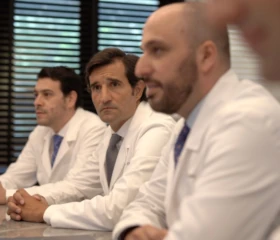
 +34 912 627 104
+34 912 627 104 Contact
Contact